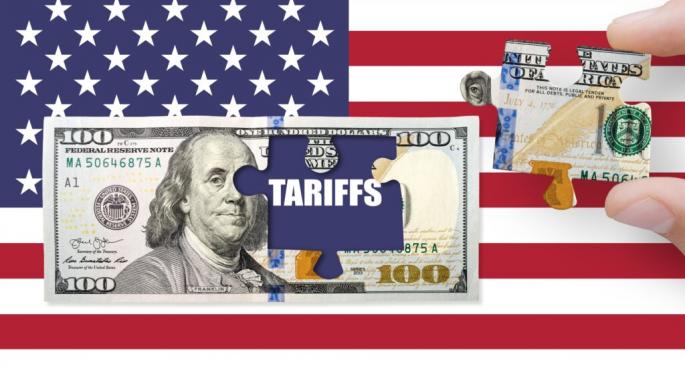Scott Bessent Once Called Tariffs As 'Dog That Didn't Bark,' Now Wall Street Analysts Predict A Less Dramatic 'One-Time' Inflation Hike As August 1 Deadline Nears
The looming deadline for President Donald Trump‘s tariffs has sparked a shift in Wall Street’s predictions. Analysts are now projecting a more moderate increase in inflation, a departure from earlier fears of a significant surge.
What Happened: Despite initial concerns that businesses would pass on tariff increases to consumers, leading to a rise in inflation, these fears have subsided in the months following Trump’s “Liberation Day” in April, reported Fortune. Treasury Secretary Scott Bessent’s description of tariffs as the “dog that didn’t bark” has gained traction, with analysts now anticipating a potential delay or a single inflation hike instead of a continuous increase.
Goldman Sachs, for instance, has adjusted its base-case trade policy assumptions. The bank’s chief economist, Jan Hatzius, stated that the “letter tariffs” scheduled for August 1 may not take effect, but a reciprocal tariff rate increase from 10% to 15% is now being factored in.
The proposed 25% pharmacy tariffs are expected to be delayed until after the 2026 midterm elections.
Previously, Goldman had projected the effective tariff rate to be around 14% in 2025. However, they now anticipate it to be closer to 20% by next year. Despite this, Hatzius framed the tariff impact on inflation as a "one-time price level shift akin to a VAT hike" rather than a prolonged issue.
Meanwhile, Deutsche Bank's Henry Allen stated that the market is clearly not pricing the proposed August 1 tariffs. But he cautioned saying, “…the paradox is that as markets discount the tariffs and perform strongly, that's actually making the higher tariffs more likely as the administration grows in confidence."
SEE ALSO: Shiba Inu Rallies 10% In 1 Week: Can It Go Higher? – Benzinga
Why It Matters: The shift in Wall Street’s predictions comes amid a broader change in focus. The ongoing trade war, which was a major concern for investors, is no longer the primary focus as the second-quarter earnings season begins. The main concern now is the potential impact of consumer spending on corporate earnings due to the tariffs.
With the S&P 500 rising about 4.4% this month, markets appear to be largely unfazed by the White House's shifting stance—possibly counting on the "TACO trade" (Trump Always Chickens Out) to hold true.
Trump’s tariffs have also had a significant impact on specific industries. For instance, the Donald Trump administration’s unveiling of a new 15% tariff on imported vehicles still leaves U.S. automakers vulnerable to steel import tariffs, tariffs on Canadian, Mexican and Chinese auto parts.
Meanwhile, the tariffs have forced AstraZeneca plc to bring substantial pharmaceutical production to the U.S., leading to a $50 billion investment in the country by 2030.
READ MORE:
Image via Shutterstock
Disclaimer: This content was partially produced with the help of AI tools and was reviewed and published by Benzinga editors.
© 2025 Benzinga.com. Benzinga does not provide investment advice. All rights reserved.
Posted-In: Economics



